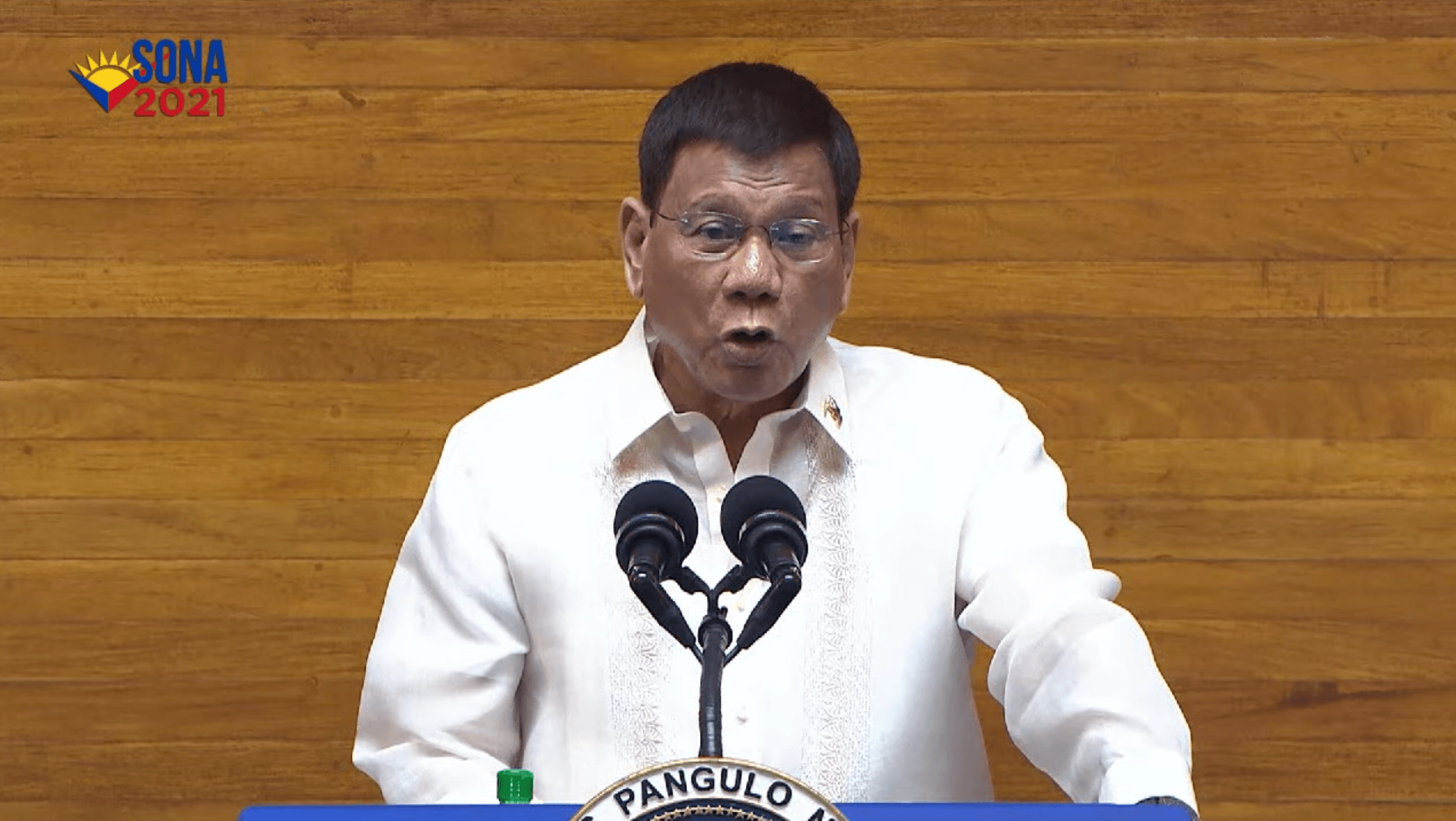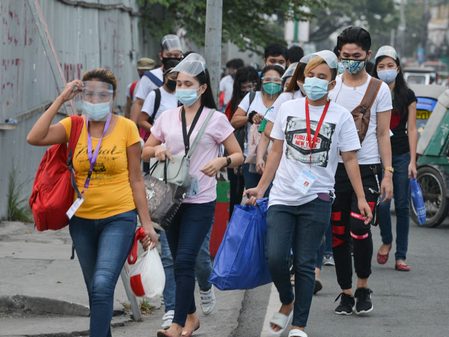SUMMARY
This is AI generated summarization, which may have errors. For context, always refer to the full article.

In his sixth and final State of the Nation Address, President Rodrigo Duterte rehashed the many wars he fought in his administration – those against illegal drugs, communists, and oligarchs, among others.
But for sociologist Jayeel Cornelio, it all boils down to one thing: imagined enemies.
“This is a president who will define his last year by waging war on imagined enemies. In fact, if you think about it, his entire presidency has always been about imagining enemies,” he said during Rappler’s post-SONA panel on Monday, July 26.
Duterte’s popularity
According to Cornelio, who is the director of Ateneo de Manila University’s Development Studies Program, people on the ground bring up two things when they are asked why they like Duterte: his war on drugs and their perception of Duterte not being a corrupt politician.
He considered the war on drugs as the cornerstone policy of Duterte’s administration. “Kung babalikan natin ‘yung public and popular support for the war on drugs (If we look back on the public and popular support for the war on drugs), in reality people supported the war on drugs not because of moral reasons… but because they were thinking of how it would make their lives far safer, their communities much more secure, and therefore they could live far decent lives,” Cornelio said during the pre-SONA panel on the same day.
He added that what people were looking for back in 2015 was a politician who was not corrupt and was also out there to protect the interests of ordinary people. “Put them all together, what do you have? President Duterte. Ano ’yung slogan nila nun? Tapang at malasakit (What was their slogan? Courage and compassion). It actually made sense.”
But this narrative was not anticipated in 2015, said Cornelio, since the surveys then showed that people were concerned about employment, inflation, and wages. Duterte flipped that narrative.
“At the national level, ang hinahanap ng mga ordinaryong Pilipino ay economy, employment, wages, inflation. Classic. Pero at the community level, ‘ano po ’yung mga mahahalaga para sa inyo dito sa inyong pamayanan?’ Ang sagot ng mga tao: security, security, security. What Duterte did was to simply transform that simple community-based concern into a national storyline,” Cornelio said.
(At the national level, ordinary Filipinos were concerned about economy, employment, wages, inflation. Classic. But at the community level, when asked ‘what is important for you here in your community?’ The people would answer: security, security, security.)
Meanwhile, experts think Duterte failed to use his enduring popularity to improve the lives of Filipinos, as they continue to feel and experience poverty and hunger especially amid the ongoing pandemic.
‘Wasted presidency’
Cornelio said the drug problem was “bloated,” while communists belonged to a “very weak organization.” Yet, Duterte spent a huge chunk of his speech ranting about these two issues.

It took two hours before the President started to discuss the government’s pandemic response.
“Mas consequential ‘yung COVID (COVID is more consequential). This is the irony. This is a warfreak President who fails to see where the real enemy lies. And it’s in that sense that this speech is emblematic of his presidency,” Cornelio said.
He thinks the issue of security is where the battle will again be drawn in 2022, because the social media industry will come in to create “urgencies.” He added that, apart from the power of social media in “making the enemies real,” it is also about the power of populism in surfacing the fear where there should be none, and making people forget that there are other real enemies.
“And I think it’s in that sense [that] this is a very, it’s a wasted presidency, if you ask me. Creating enemies where they don’t exist, waging wars on enemies that are not consequential, and then forgetting that there are real problems: COVID, poverty… hunger has increased. Where the real problems lie, he failed to mention them,” Cornelio said.
Back to gut issues in 2022?
Rappler reporter Pia Ranada attributed Duterte’s lacking discussion on the COVID-19 pandemic to his being at a loss on how to handle it.
“He’s devoting his last SONA to saying that I’ve been fighting these wars and I’ll continue fighting them because these are the wars that I think I can handle. And that’s very disheartening for Filipinos because, as surveys show, we’re more concerned about jobs, really, and the economy,” she said.
Cornelio brought up the Pulse Asia survey that showed what people wanted to hear about in Duterte’s last SONA: livelihood, economy, and inflation.
“So babalik ulit doon sa gut issues (It will come back to the gut issues), in other words. Where is the Philippines gonna be in the next six years? I feel that that’s one question that we need to keep pounding on these candidates, pounding on Duterte’s administration, and [something] we need to keep asking whoever wants to run this country in the next six years,” Cornelio said. – Rappler.com
Add a comment
How does this make you feel?

![[The Slingshot] Alden Delvo’s birthday](https://www.rappler.com/tachyon/2024/04/tl-alden-delvo-birthday.jpg?resize=257%2C257&crop=263px%2C0px%2C720px%2C720px)
![[EDITORIAL] Ang low-intensity warfare ni Marcos kung saan attack dog na ang First Lady](https://www.rappler.com/tachyon/2024/04/animated-liza-marcos-sara-duterte-feud-carousel.jpg?resize=257%2C257&crop=294px%2C0px%2C720px%2C720px)
![[Newsstand] Duterte vs Marcos: A rift impossible to bridge, a wound impossible to heal](https://www.rappler.com/tachyon/2024/04/duterte-marcos-rift-apr-20-2024.jpg?resize=257%2C257&crop=278px%2C0px%2C720px%2C720px)


There are no comments yet. Add your comment to start the conversation.